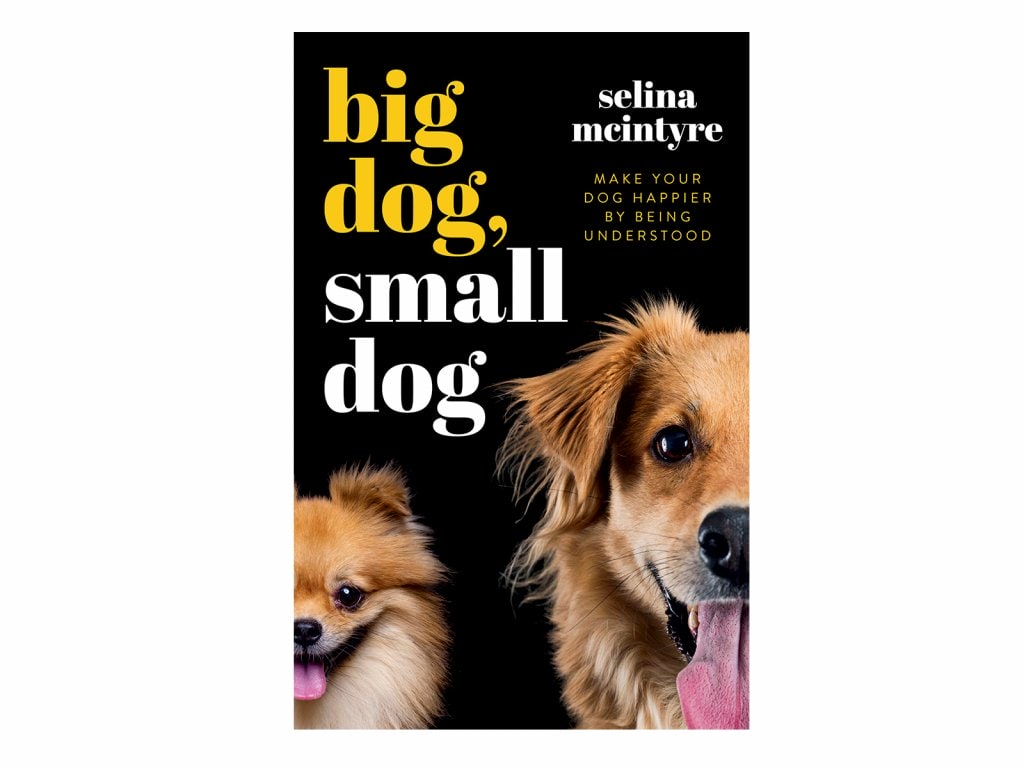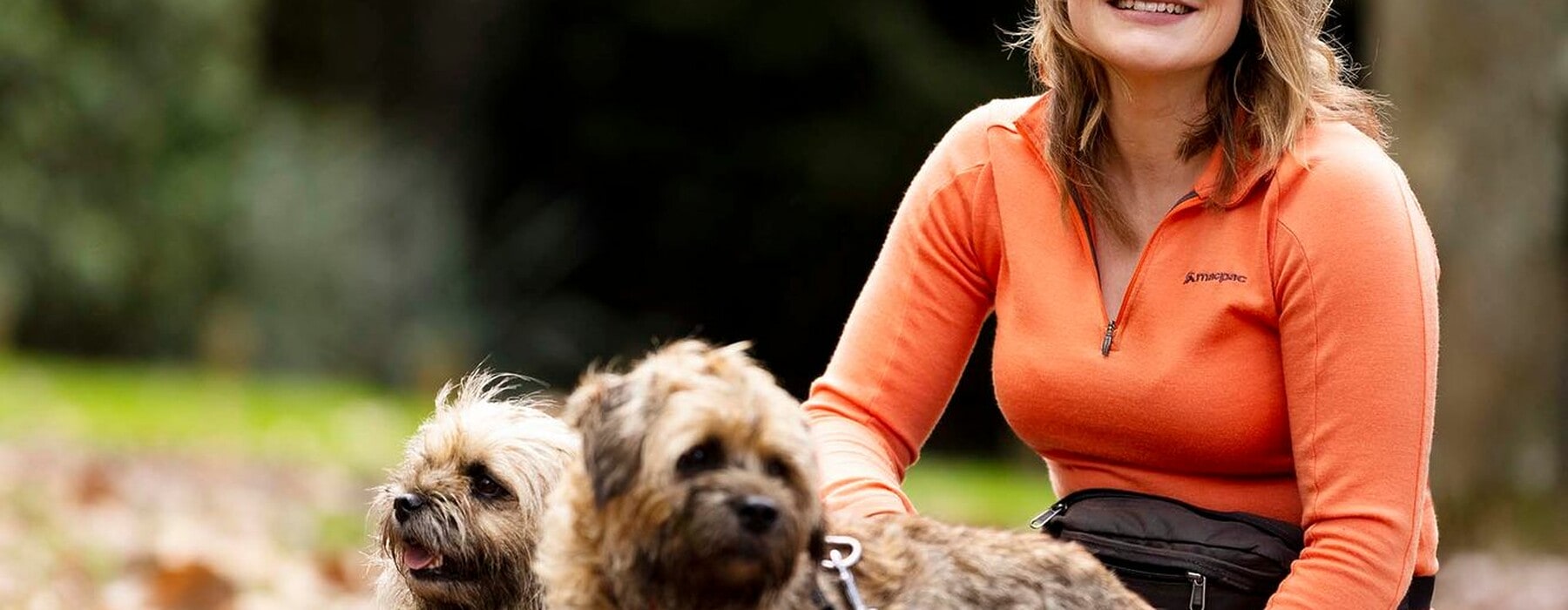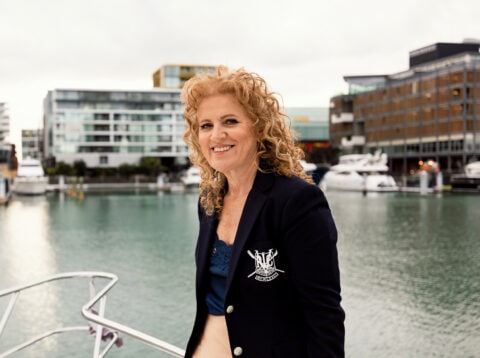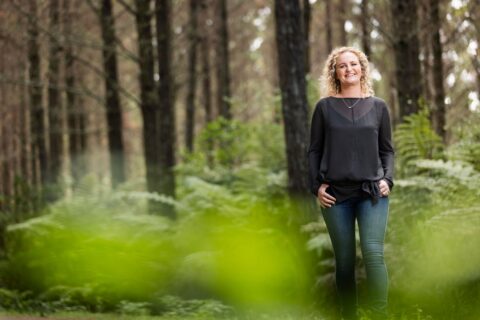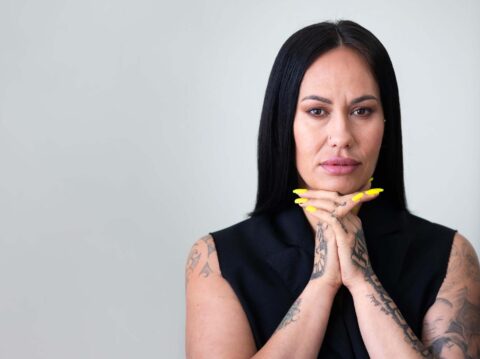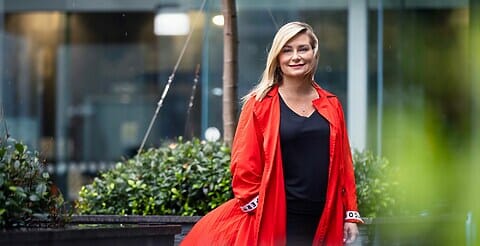Helping people understand their pets is a walk in the park for dog behavioural consultant Selina McIntyre. She shares her training tips with Sharon Stephenson.
The trouble started in May. A month earlier, in a fit of what can only be described as hormone-induced madness, I swiped right on the SPCA’s website and ended up with an eight-week-old puppy named Harper.
Part terrier, part who-knows-what, this tiny scrap of brown and black fur immediately moved into our home and our hearts. But Bristol, our 13-year-old dog, wasn’t so keen. At first he ignored Harper, but by May he’d become aggressive, bailing up the newcomer in corners and giving his best Sid Vicious snarl.
Two days ago, in a swirl of teeth and fur, the pair had a full-on fight, ending only when I turned the hose on them.
By the time I chat to Selina McIntyre, my nerves are shot and I feel like an epic failure. “Dogs are creatures of habit and routine,” says the dog behavioural consultant. “Especially a 13-year-old dog. Introducing a boisterous puppy who can’t always read social cues from the older dog can create a lot of stress.”
The solution, says Selina in her kind but no-nonsense way, is to provide leadership.
“Dogs are pack animals that instinctively look for a leader, and if their humans don’t provide that leadership, they can get confused and take on that role. It’s stressful for them as they need to protect you, their territory and the other dog.”
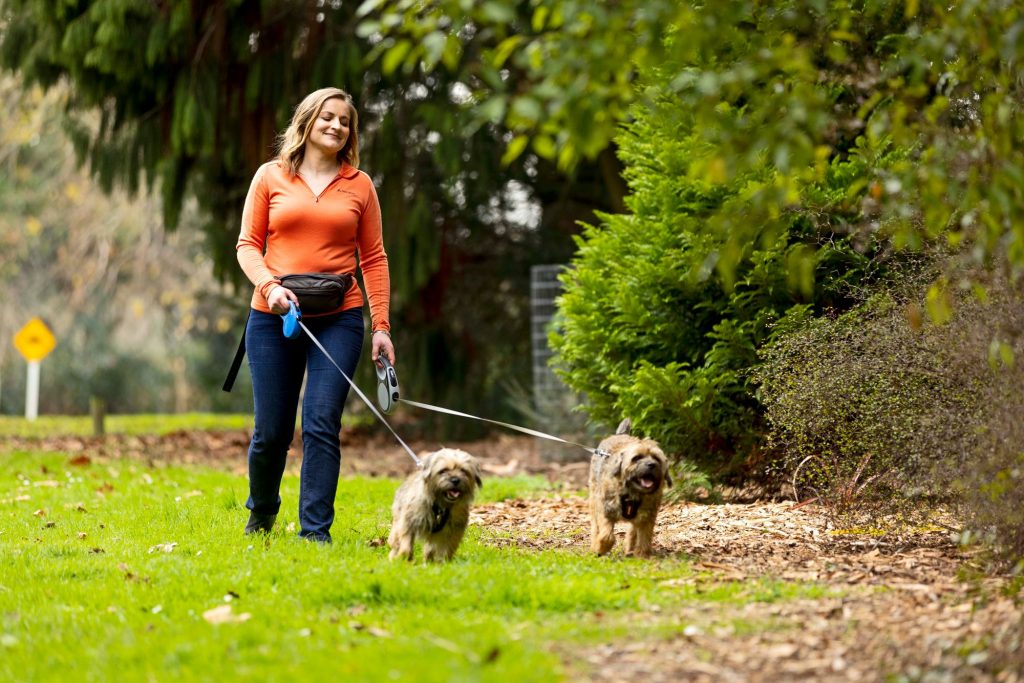
Our mission, she instructs, is to act confident around both dogs to reinforce our leadership, work out who the higher-ranking dog is (Bristol) and treat him as such, feeding him, giving him treats and attention first, and not letting Harper pull ahead of him on walks.
If you have a dog who barks all day or pulls on the lead, if you’re trying to raise a baby with a dog who’s not happy about the new addition, or if your canine friend is showing signs of separation anxiety, Selina is the woman to call.
The 37-year-old has been dog whispering since 2004 when she launched Dogs Best Friend, her Waikato-based consultancy. Since then, Selina estimates she’s helped around 1000 canines – and their owners.
“I’d say around 99% of my work is with owners who misunderstand what their pet needs. That could be meeting their physical needs like walking them twice a day, or giving them mental stimulation such as toys and having to work for their food, either with feeding devices or using scatter feeding.
When dogs don’t get that, they can end up stressed and anxious which can exhibit in behaviours such as barking and destruction.”
So keen was Selina to demonstrate that canine creatures are great, she wrote a book – Big Dog, Small Dog – that shoehorns her extensive experience into 290 pages.
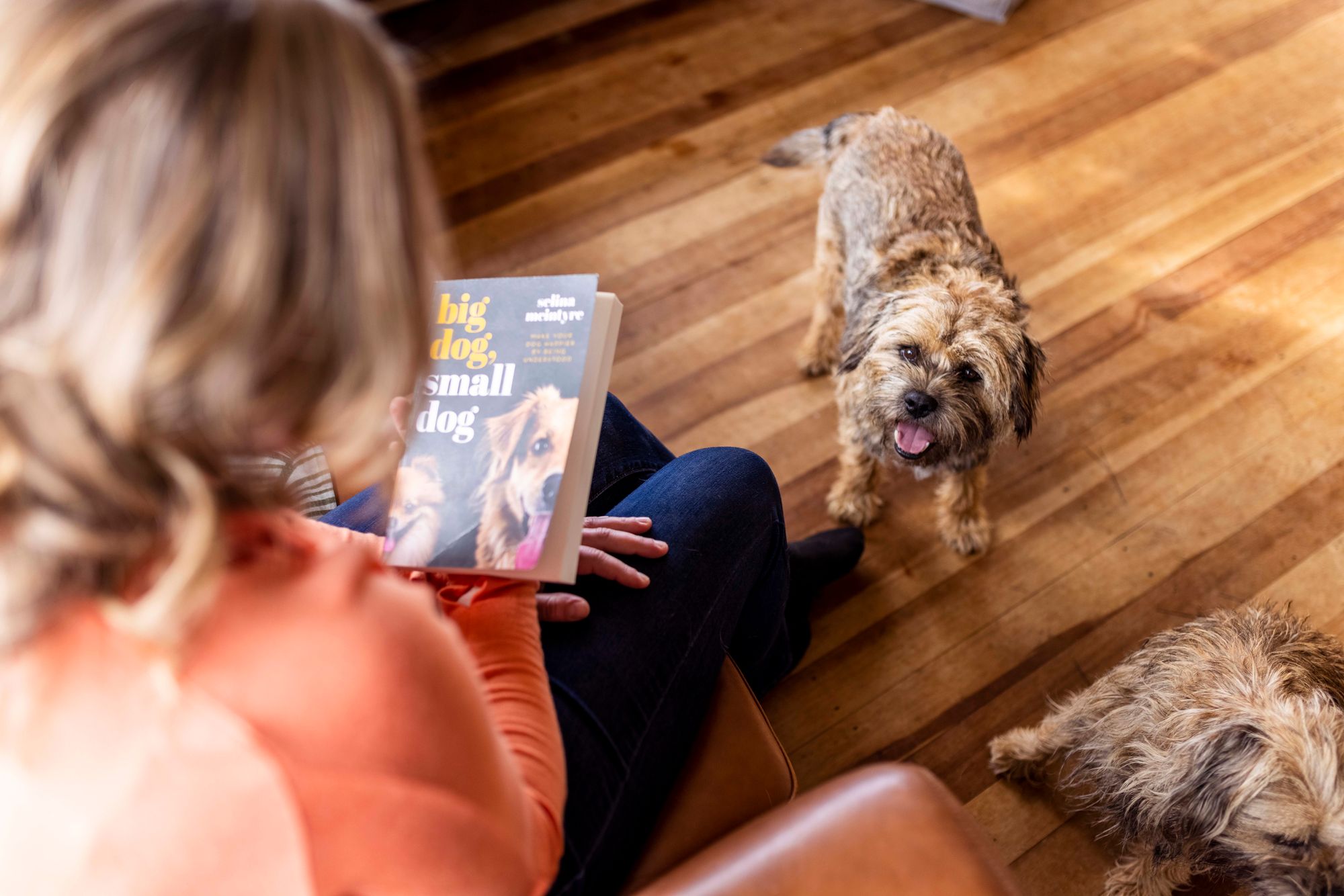
“It’s a great opportunity to share what I’ve learnt. Although I admit when I got the email from the publishers, I thought it was a joke!”
Producing 70,000 words in 10 months isn’t the easiest thing Selina – mum to Lochlan, 11, and Isla, 10 – has ever done, but she’s somewhat of a ninja when it comes to time management.
“I’m good at planning, so I worked around my day job, the kids, my husband Ross and our two dogs. I thought I’d get the bulk of it written during lockdown, but between homeschooling and advising people about dogs adopted during that period, it was a challenge.”
She managed it though, and her words of wisdom are spliced with case studies of actual clients she’s worked with over the years, although she’s changed their names and details.
Ask Selina if she’s doing herself out of a job with this book and she’ll laugh the laugh of someone who knows that could never be true.
“There will always be issues such as aggression and separation anxiety, where owners need someone to come in and decipher what’s going on,” she says. “I get a lot of work referred by vets and, at the moment, a lot of what I call ‘Covid puppies’, who were adopted during lockdown but have missed the critical socialisation period. That’s the time up to 12 weeks of age; the most important period of learning and development in their lives. Because of lockdown they weren’t socialising with other dogs or people, so that can shape their behaviour into adulthood. I’m now working with owners to try and reverse some of that stunted development.”
Selina’s passage through life has always involved animals. In fact, she’d go so far as to say she prefers animals to humans.
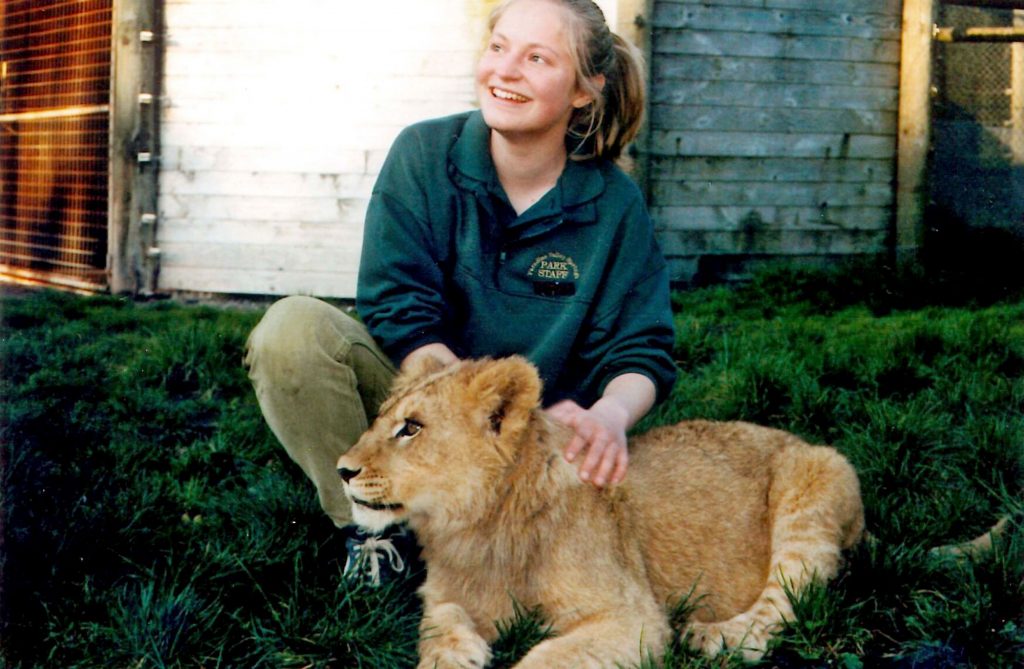
“I became a vegetarian at 12 because of animal welfare issues, and I was always the kid at parties hanging out with the family’s pets rather than with the other kids.”
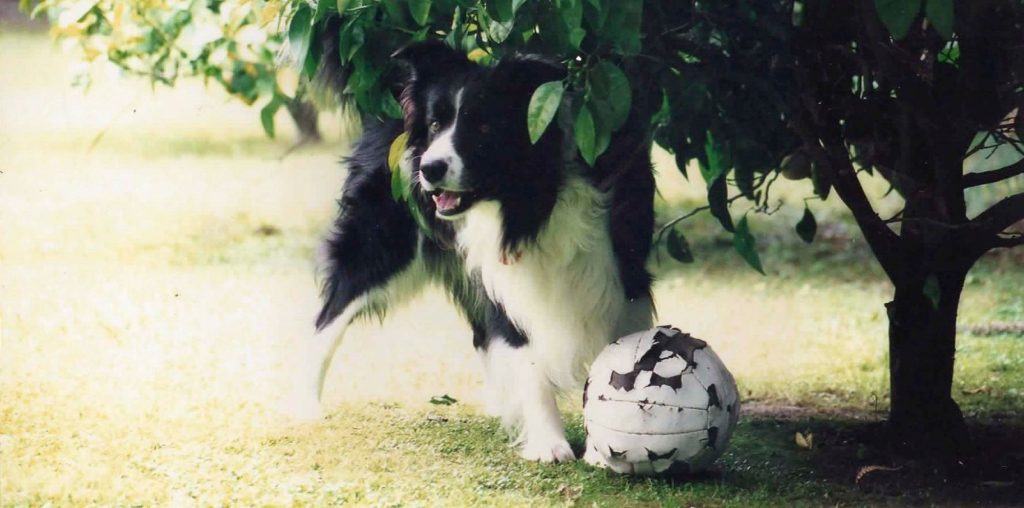
When she was 12, she wrote a “ridiculously impassioned” letter to the owner of Rotorua’s Paradise Valley Springs wildlife park, asking if she could volunteer.

“I must have pulled some heartstrings, because they said yes.”
Selina clearly kept on impressing the right people, because she spent eight years working there during weekends and school holidays, eventually looking after the lion cubs.
A zoology degree at the University of Otago seemed like the natural choice, but Selina packed it in after a year because it wasn’t hands-on enough. Instead, she switched to a Bachelor of Applied Animal Technology in Auckland.
“We had to do 250 hours of work experience as part of our studies, so I started a dog-walking business and then Dogs Best Friend.”
She met her husband in an Auckland cemetery when she was working as a MAF (now Ministry of Primary Industries) field inspector checking for painted apple moth, while Ross, then an arborist (he now owns his own building firm) was cutting down trees.
The couple moved to Waikato in 2011 for the usual reasons – an affordable home and to be closer to family. “Plus you can’t beat the sense of community in a small town,” says Selina.
Sixteen years after diving into the doggy pool, it’s still love.
“Seeing a difficult dog turn around – and owners committed to working on the issues – is the best thing ever,” she says. “I’ve worked with some terribly difficult dogs in my career, dogs that might otherwise have been given to a shelter or ended up being euthanised, who have gone on to become fantastic family pets. The key is to be realistic about your expectations, make the training positive for both you and your dog – and be patient!”
Seeing a difficult dog turn around – and owners committed to working on the issues – is the best thing ever
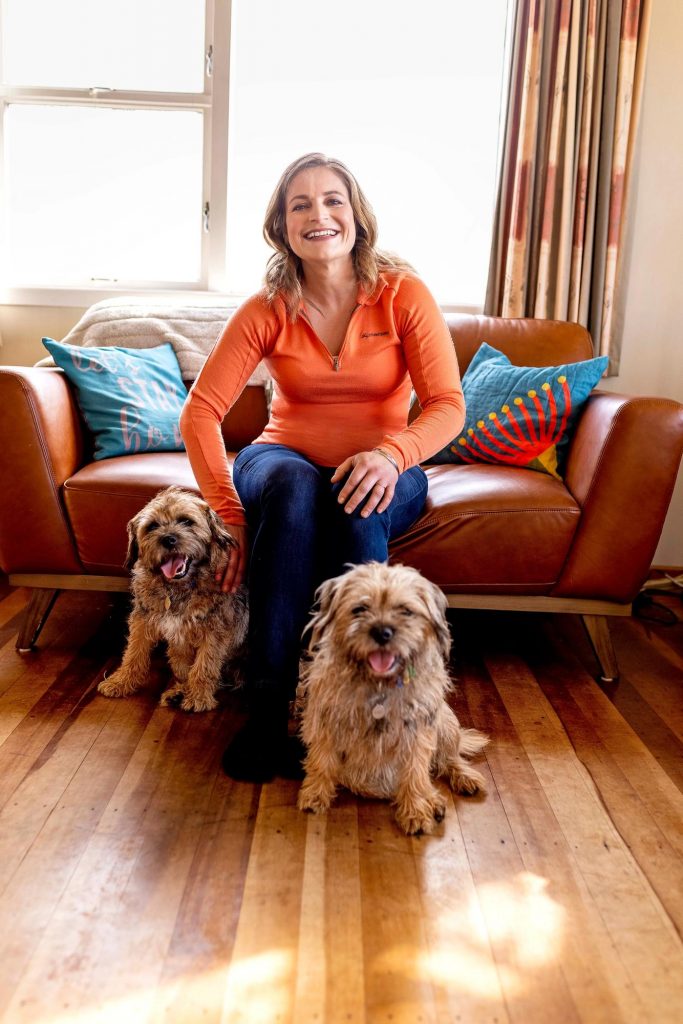
Selina’s top training tips
1. “Remember, a dog is a dog and is happiest being treated as such. Don’t come at it from a human perspective.
2. Don’t underestimate your dog’s needs, including twice-daily walks, no matter what its breed.
3. Knowledge is power. Learn as much as you can about your dog and his or her needs so you can work to prevent behavioural issues.
4. People spend lots of money on items that don’t really address the root of a dog’s problem, such as shock collars and Halti headcollars. I prefer training the natural way without these gadgets.
